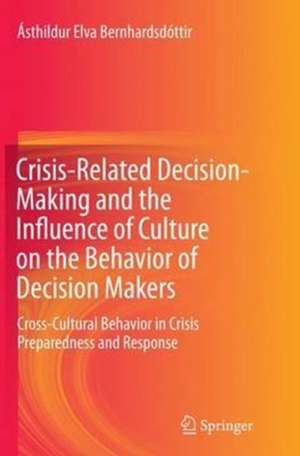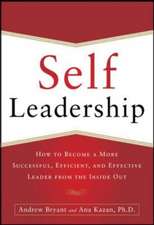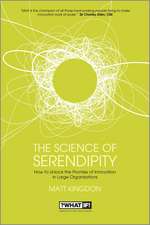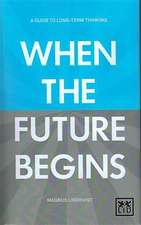Crisis-Related Decision-Making and the Influence of Culture on the Behavior of Decision Makers: Cross-Cultural Behavior in Crisis Preparedness and Response
Autor Ásthildur Elva Bernhardsdóttiren Limba Engleză Paperback – 22 oct 2016
| Toate formatele și edițiile | Preț | Express |
|---|---|---|
| Paperback (1) | 552.62 lei 38-44 zile | |
| Springer International Publishing – 22 oct 2016 | 552.62 lei 38-44 zile | |
| Hardback (1) | 649.71 lei 3-5 săpt. | |
| Springer International Publishing – 15 sep 2015 | 649.71 lei 3-5 săpt. |
Preț: 552.62 lei
Preț vechi: 690.77 lei
-20% Nou
Puncte Express: 829
Preț estimativ în valută:
105.74€ • 110.41$ • 87.32£
105.74€ • 110.41$ • 87.32£
Carte tipărită la comandă
Livrare economică 12-18 aprilie
Preluare comenzi: 021 569.72.76
Specificații
ISBN-13: 9783319365015
ISBN-10: 3319365010
Pagini: 198
Ilustrații: XVII, 198 p. 9 illus., 6 illus. in color.
Dimensiuni: 155 x 235 mm
Ediția:Softcover reprint of the original 1st ed. 2015
Editura: Springer International Publishing
Colecția Springer
Locul publicării:Cham, Switzerland
ISBN-10: 3319365010
Pagini: 198
Ilustrații: XVII, 198 p. 9 illus., 6 illus. in color.
Dimensiuni: 155 x 235 mm
Ediția:Softcover reprint of the original 1st ed. 2015
Editura: Springer International Publishing
Colecția Springer
Locul publicării:Cham, Switzerland
Cuprins
Chapter 1: Introduction.- Chapter 2: Conceptualizing Culture.- Chapter 3: Crisis Management: Themes and Variables.- Chapter 4: Risk Reduction.- Chapter 5: Decision Making and Decision-making Unit.- Chapter 6: Information Management.- Chapter 7: Learning.- Chapter 8: Crises and Culture within Countries: A Case Study.- Chapter 9: Discussions and Summation.- Chapter 10: Conclusions and Agenda for Continued Research.- Appendices.
Notă biografică
Ásthildur Elva Bernharðsdóttir is a research scientist at the Earthquake Engineering Research Centre, University of Iceland. She holds Cand.oecon degree and PhD in Political Science. Ásthildur has managerial experiences as a former director for Excellence Iceland, and director for the Institute of International Affairs and the Centre for Small State Studies, University of Iceland. She has also been involved in the broadcasting media. She has taught crisis management courses and supervised case study research. Associate of CRISMART and of the Moynihan Institute of Global Affairs at Syracuse University Ásthildur’s approach is interdisciplinary but her research focuses on crises, culture, risk, risk education and recovery. She has published research on crisis and disaster management, coordinated research group on crisis management in Iceland and participated in the development of a long-term disaster relief and recovery planning for local authorities. At the Earthquake Engineering Centre, Ásthildur teaches a graduate course (on MSc/PhD level) “Urban resilience in disaster prone areas”.
Textul de pe ultima copertă
This book provides an analysis on the impact of culture on crisis management, exploring how different cultural types are reflected in crisis-related decision making patterns. Providing an interdisciplinary and international perspective with a rich research and practical outlook, this work is an important contribution to the field of crisis management and decision making. Offering essential understanding to how countries, organizations, groups and individuals prepare for and respond to crises thus combining research across several disciplines, offering theoretical development, empirical testing and reporting on the testing of a large number of hypotheses across several frameworks. The novelty of this book lies in its presentation of the quantitative testing of the relationship between cultural theory and crisis management, drawing on data from cases that cross continents and crises types. The book also includes a review of cases from South Korea and suggests a number of ways in which practitioners at various levels of government can prepare their organizations to cope better with the introduction of cultural bias into the decision making process. Those with an interest in risk management, disaster management and crisis management will value this pioneering work as it reveals the influence of cultural bias in decision making processes. This work offers important insights for practice as well as for theory-building, scholars and practitioners of public administration, management, political, and international relations, organizational, social and cultural psychology, amongst others, will all gain from reading this work.
Caracteristici
Introduces New Cultural Frameworks for the Social Sciences Provides insights for practice and theory-building in the field of crisis management Demonstrates how cultural bias influences the decision making process and thus enables better preparedness for crises











